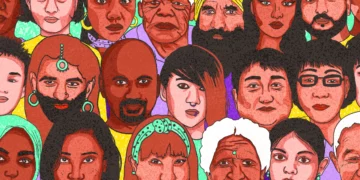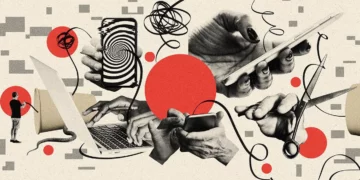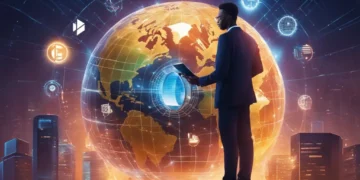
Cultural Appropriation and Information: Who Owns Knowledge in a Diverse Society?
The article delves into cultural appropriation, exploring ownership of cultural practices and knowledge in a diverse society. It highlights the importance of informed consent, ethical sharing, and collaboration, urging respect for cultural significance while fostering mutual understanding and appreciation among various communities in an interconnected world.

Digital Literacy as a Cultural Imperative: Redefining Information in the Age of Misinformation
In the digital age, fostering digital literacy is essential for navigating misinformation. Key skills include critical thinking, media literacy, and effective information-seeking. By promoting these competencies in communities and educational systems, society can enhance civic engagement, encourage healthier discourse, and empower individuals to critically evaluate information.

Surveillance and Privacy: The Dichotomy of Information in American Society
The article explores the tension between surveillance and privacy in America, highlighting government and corporate data collection practices. It discusses the implications for civil liberties, the role of legislation in protecting privacy, and the growing public demand for transparency and accountability in the digital age. Balancing security and individual rights remains a complex challenge.

Language and Power: How Information Translates into Social Hierarchies
Language significantly influences social hierarchies, shaping access to power, information, and opportunities. Proficiency in the dominant language often determines success in various sectors, reinforcing disparities, especially for marginalized groups. Advocating for inclusivity and linguistic diversity is essential for fostering equity and empowering all voices in society.

The Globalization of Information: How Translations Affect American Cultural Norms
Globalization is reshaping American culture through the exchange of diverse narratives facilitated by translation. These interactions challenge traditional values, promote inclusivity, and influence consumer behavior. By accessing foreign perspectives, Americans engage with complex social issues, enriching their identities and fostering greater cultural awareness in a globalized world.

The Language of Data: How Information Shapes Identity in America
The article explores how data shapes personal and societal identity in America, highlighting the influence of social media, consumer behavior, and political discourse. It emphasizes the need for awareness regarding privacy and authenticity as individuals navigate their digital selves in an increasingly data-driven world.

The Ethics of Information: Cultural Values and the Fight Against Fake News
The article explores the ethical challenges posed by fake news, emphasizing the roles of media responsibility, cultural perspectives, and regulatory efforts. It advocates for enhancing digital literacy and community engagement to foster an informed society, while highlighting the importance of integrity and accountability in information dissemination amidst rising misinformation.

Reimagining Public Discourse: The Role of Information in American Democracy
In today's information-driven society, understanding media literacy is crucial for fostering active citizenship. As misinformation spreads, citizens must critically evaluate sources and engage in public discourse. Empowering individuals through education and civic platforms promotes informed participation, strengthens democracy, and holds political leaders accountable for their actions.

The Rise of Industrial Jargon: Communicating in the Digital Age
The article explores how industrial jargon has evolved due to technological advancements, enhancing communication efficiency within sectors like finance and technology. While it fosters exclusivity and innovation, jargon can also alienate outsiders. Advocating for clarity and tech literacy is essential for bridging communication gaps in today's digital landscape.

The Future of Business Language in a Multilingual Society
In an increasingly globalized business landscape, effective multilingual communication is essential. Organizations must embrace linguistic diversity and cultural competence to enhance customer engagement, foster inclusivity, and drive innovation. Leveraging technology and recruiting diverse talent can transform communication into a strategic advantage, paving the way for growth in the global marketplace.